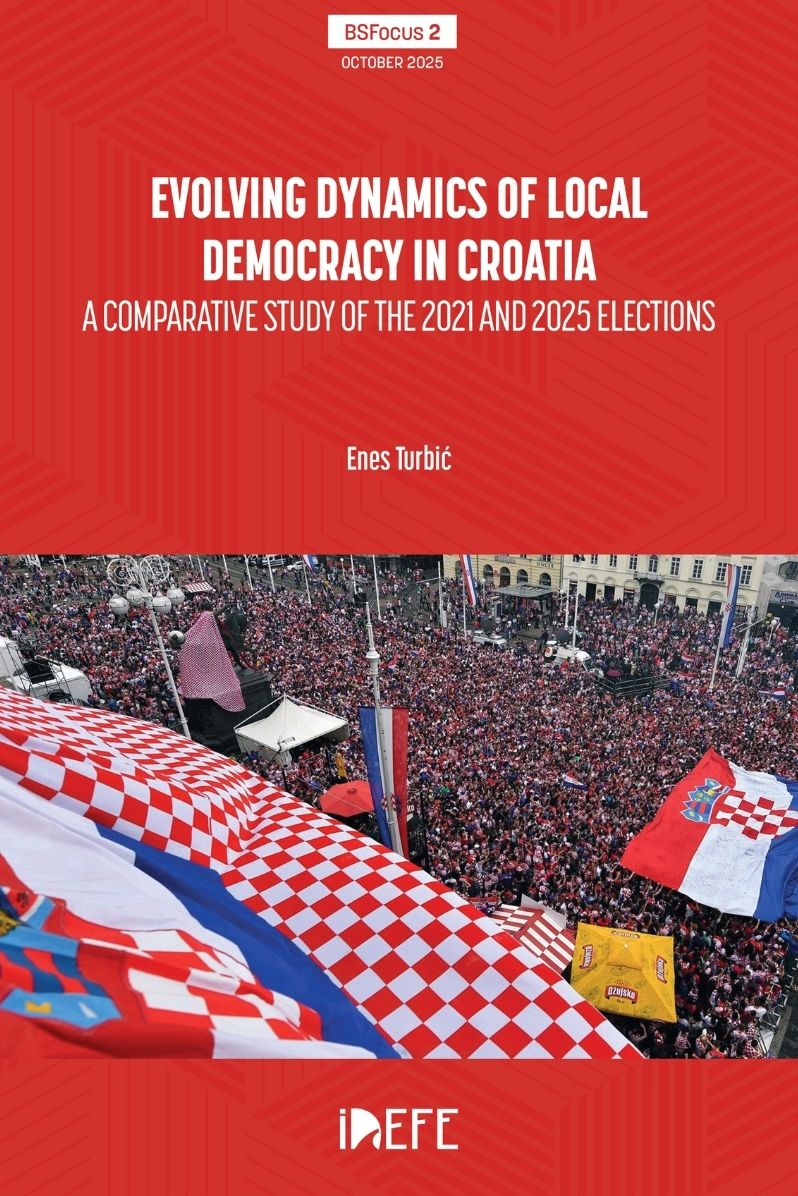Enes Turbić
IDEFE Publications, 2025
12 pp.
DOI: 10.51331/focus02
Introduction
Local elections represent one of the key pillars of the democratic order, as they ensure the direct participation of citizens in decisions concerning the governance of the communities in which they live. In the Republic of Croatia, from the country’s independence in 1991 to the present day, local elections have undergone a profound transformation, from a mechanism of state consolidation and the dominance of a single political option to a system increasingly characterized by pluralism, personalization, and experimentation with new political models. From the first local elections in 1993 to those held in 2025, a clear dynamic has emerged between traditional party structures and increasingly influential independent actors, reflecting a broader process of democratic maturity and social change.
This analysis offers a concise overview of the evolution of local elections in Croatia over the past three decades, emphasizing key political turning points, transformations in electoral practices, and shifts in candidate profiles. It further examines the influence of European integration processes and the emergence of grassroots initiatives on local political dynamics. Particular emphasis is placed on the 2021 and 2025 election cycles, with a comparative perspective that highlights the rise of progressive platforms in urban areas, the gradual erosion of traditional party structures, and the increasing divergence in political behavior between urban centers and rural communities.

Evolving Dynamics of Local Democracy in Croatia: A Comparative Study of the 2021 and 2025 Elections
Download Publication